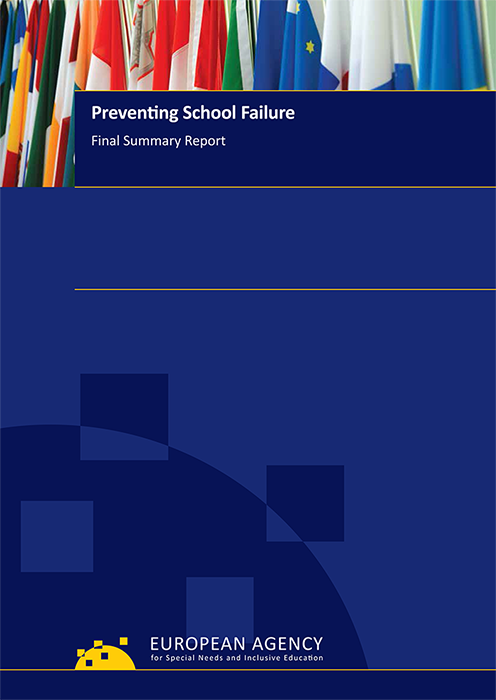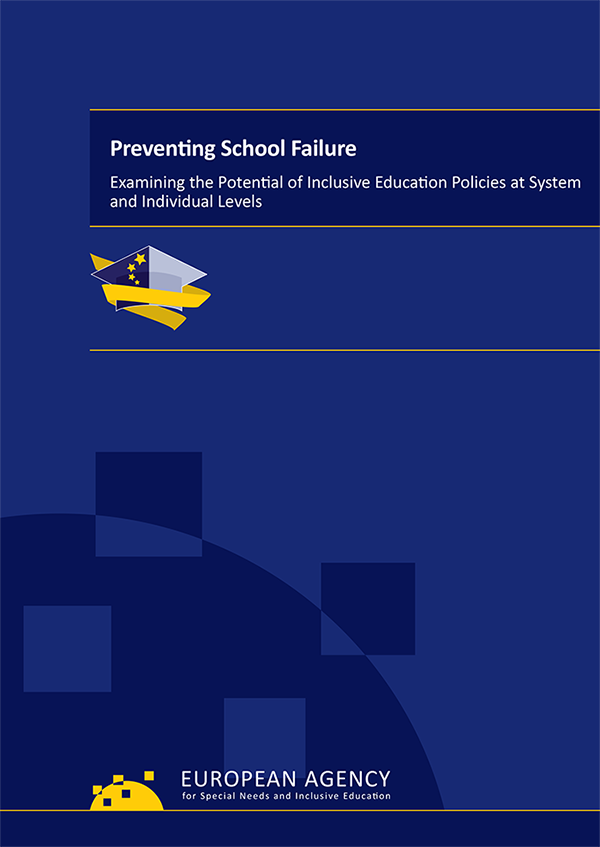Building school capacity and combating school failure are crucial steps in the efforts to develop more inclusive education systems. Recent Agency work – particularly the Organisation of Provision to Support Inclusive Education and Raising the Achievement of All Learners in Inclusive Education projects – has highlighted this. School failure has been linked to a lack of inclusion and fairness in the education system. While preventing school failure at the system level is frequently mentioned as an important issue, a focus on individual learners seems to prevail.
The Preventing School Failure (PSF) project aims to address this gap, by highlighting the link between school failure and inclusive policies. It particularly aims to examine the evidence to suggest that inclusive education policies have the potential to prevent school failure – both in relation to individuals and the overall system. To this end, the following key project questions guide the project activities:
- What does research literature say about the relationship between preventing school failure and inclusive education systems?
- How do Agency member countries’ policies for inclusive education understand and deal with preventing school failure in relation to whole-system issues and individual learners?
- What inclusive policy elements and frameworks appear to be necessary to prevent school failure?
Project framework
The project considers inclusive policy frameworks at national and local levels that effectively support schools to develop in ways that include all learners, prevent failure and ensure learner success in school and life. By examining system-level approaches, it extends the consideration of school failure to the system perspective, rather than focusing only on individual learners.
Project activities started in 2018 and concluded in 2020.
Participants and target group
One of the project activities involved collecting information from Agency member countries through a country survey. The aim was to identify national policy approaches to dealing with school failure. The following countries participated in the project: Czech Republic, Estonia, Finland, Germany, Greece, Iceland, Ireland, Latvia, Malta, Serbia, Slovakia, Sweden, UK (Northern Ireland) and UK (Scotland).
Information from these 14 education systems was used for a deeper analysis of some of the policies and measures that are directly related to preventing school failure. The project synthesis report presents this analysis.
The main target group for the project outcomes is national-level policy-makers for inclusive education.
Aims
The project aims to provide a comprehensive overview of available policy and research literature related to preventing school failure. The project’s added value is the identification of inclusive policy elements that can ensure that schools become more engaging and equitable at the same time.
Project activities and outputs
The project focused on desk research. It incorporated two parallel strands/activities:
- The first strand reviewed and analysed European and international research literature regarding the prevention of school failure in relation to inclusive education.
- The second strand focused on existing national policy measures for preventing school failure. It involved collecting information from participating countries through a country survey, with the aim of identifying their policy approaches to dealing with school failure.
The final project outputs are:
- An international literature review: this provides an overview of European and international research regarding the prevention of school failure in relation to inclusive education.
- A country information thematic analysis: this presents participating countries’ definitions of ‘school failure’ and provides comprehensive information on their national, regional and local policies, measures and initiatives for preventing school failure.
- A project synthesis report, based on the combined evidence from the two activity strands. Overall, this output embeds all project information (wider policy framework, findings from the literature review and country information) into a comprehensive policy review. The report concludes by identifying key policy actions for the prevention of school failure.
- A summary of the project findings.


